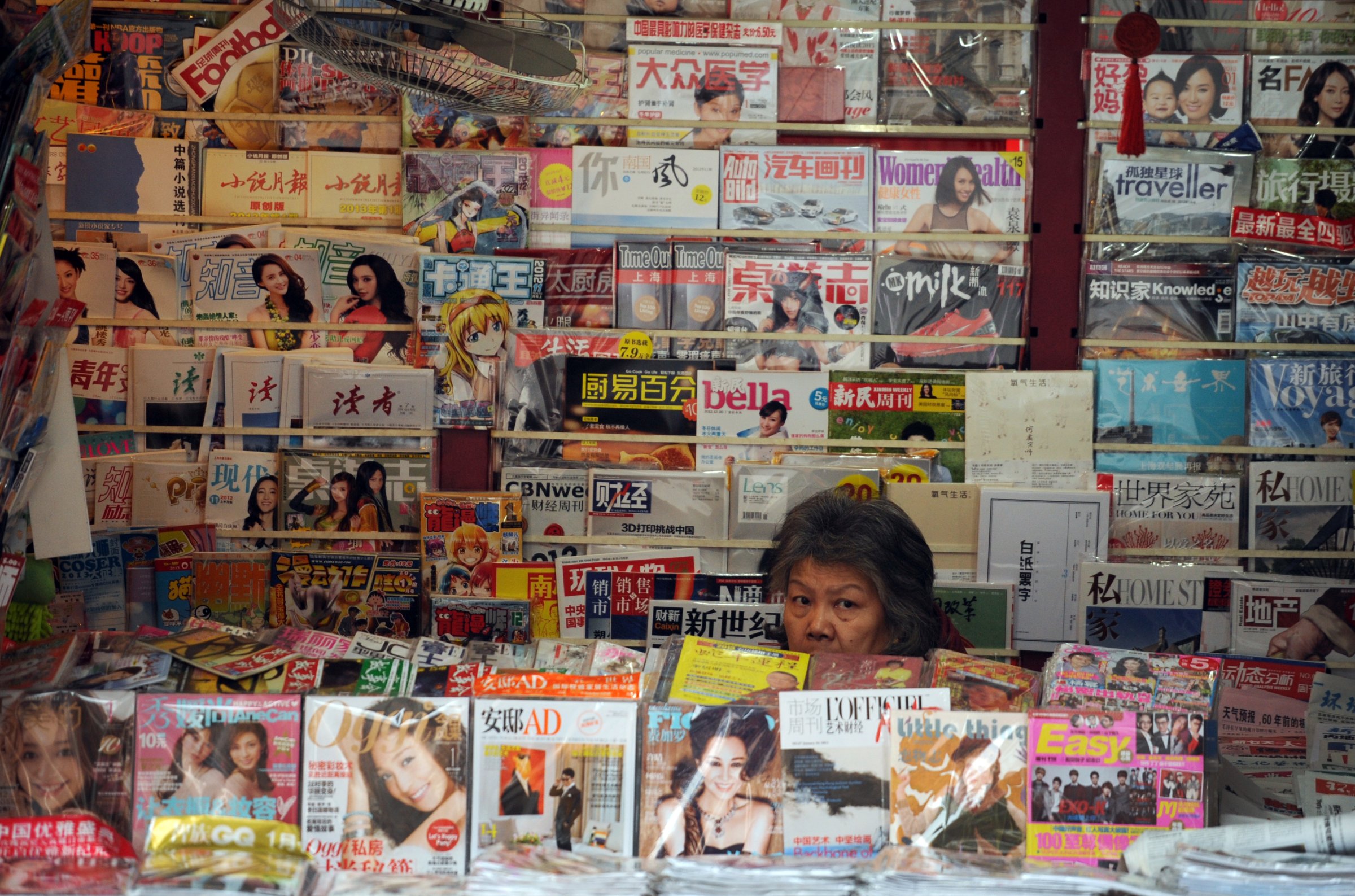
The headlines on the Southern Metropolis Daily’s Feb. 20 front page seemed innocuous enough. One paid obeisance to the Chinese Communist Party in language redolent of the Cultural Revolution: “Party-sponsored media and the government are the propaganda front and their names must be that of the party.” Below, a short headline accompanied a photo of mourners at a sea burial: “Souls return to the ocean.”
But if the neighboring headlines were read vertically, they carried a far more subversive message: “The souls of Chinese media have died because they bear the party’s name.” The word play came a day after China’s President Xi Jinping instructed domestic media to dedicate themselves, above all, to burnishing the splendor of China’s ruling party. “Love the party,” ordered Xi, on a tour of the offices of China’s biggest state media outlets. “Protect the party and serve the party.”
Southern Metropolis’s sleight of hand wasn’t subtle enough. On March 1, news leaked out that the editor in charge of the offending front page, Liu Yuxia, had been fired. It was the latest blow to media freedom in a country that last year jailed the most journalists of any nation, according to the Committee to Protect Journalists. Under Xi’s reign, the Chinese government has cracked down on messages that diverge from party line, whether from journalists, academics or even influential businessmen. Over the weekend, Ren Zhiqiang, a property magnate with some 37 million online followers, had his social-media account shut by censors. His offense? Questioning Xi’s media directive.
Members of the Chinese media, particularly those who work for commercial outfits that were given more latitude than the official press, have been practiced at cat-and-mouse games with censors. Outspoken journalists and editors have been regularly fired or even detained. But after a period of disgrace, many turned up at other publications where they again raked mud or investigated official malfeasance.
But in his third year in power, Xi has silenced even mild forms of dissent, from lawyers who want China to hew to its own constitution to watchdogs who call for officials to publicly declare their assets. Even though China now boasts the world’s largest online population, the space for free expression has narrowed. A new rule that takes effect this month could make it illegal for foreign companies or joint ventures to publish online without prior government approval.
Chinese officials have repeatedly warned the public that the West wants to prevent China’s rise and have campaigned against the lure of so-called “universal values,” such as free speech and democracy. “The Southern Media Group holds the flag of universal values,” wrote veteran pundit Sima Nan, on his social-media account, dismissing speculation that the headline placement in the Southern Metropolis Daily, which is owned by the Southern Media Group, might have been accidental. “[The media group] has erased the contribution of the party.”
Meanwhile, one journalist with the Southern Media Group, who wished not to be named because of the sensitive political climate, described a gloomy mood at the paper’s offices. Earlier this year, Li Xin, a former editor for Southern Metropolis Daily’s website, disappeared from Thailand, where he was planning to apply for political asylum. Days later, he turned up back in China, under detention. Human-rights groups fear Li, who had leaked a list of censored terms to overseas media, was kidnapped abroad and forced home — just one in a series of suspected extraterritorial seizures in recent months. “We think it won’t get any worse and then it does,” says the Southern Metropolis Daily journalist. “We are being strangled.”
— With reporting by Yang Siqi / Beijing
More Must-Reads from TIME
- Cybersecurity Experts Are Sounding the Alarm on DOGE
- Meet the 2025 Women of the Year
- The Harsh Truth About Disability Inclusion
- Why Do More Young Adults Have Cancer?
- Colman Domingo Leads With Radical Love
- How to Get Better at Doing Things Alone
- Michelle Zauner Stares Down the Darkness
Contact us at letters@time.com